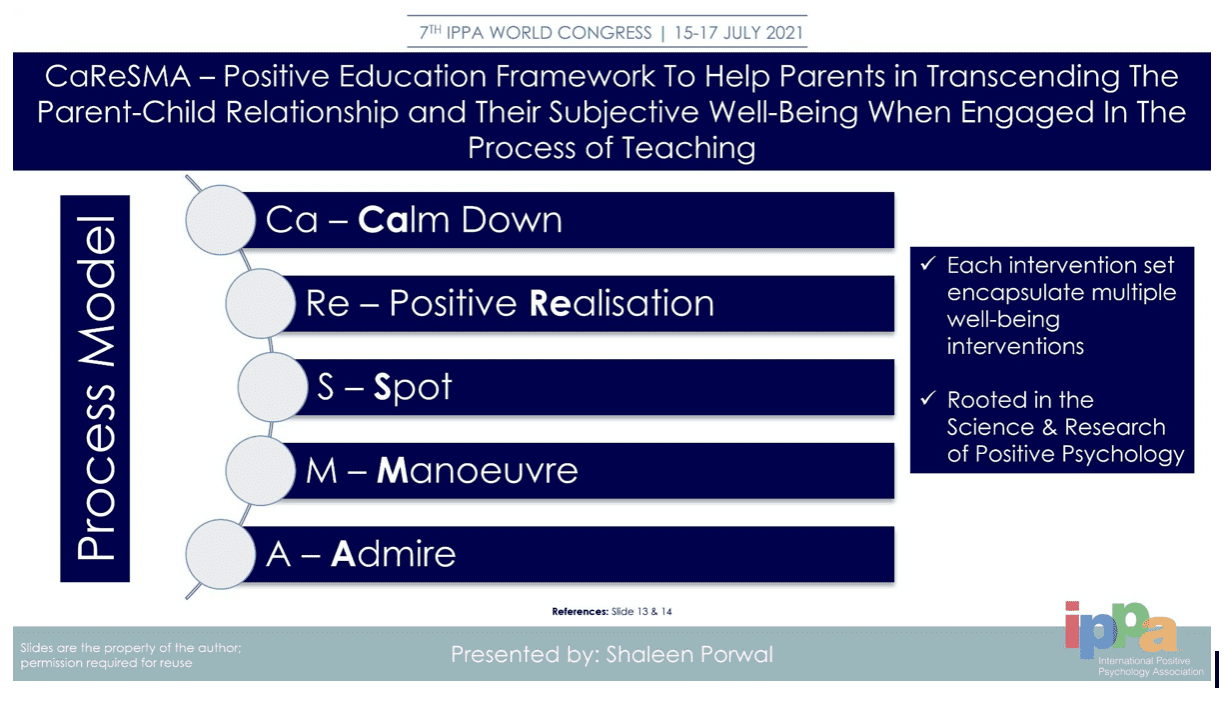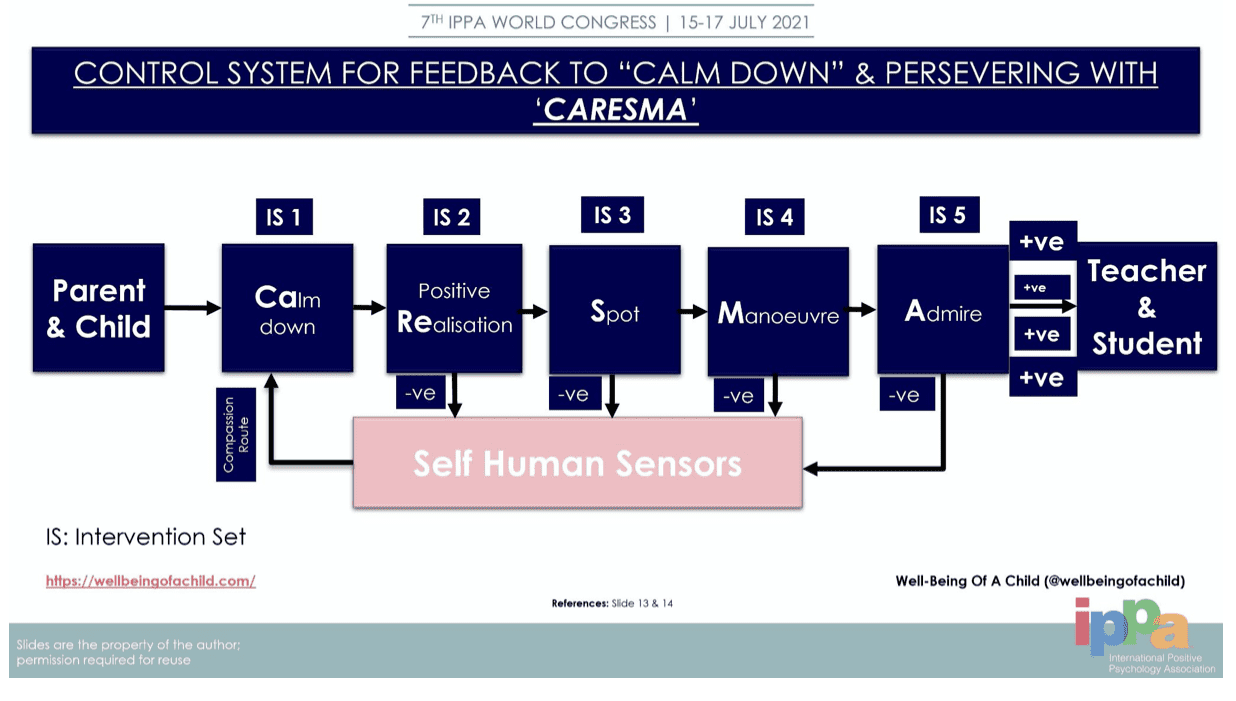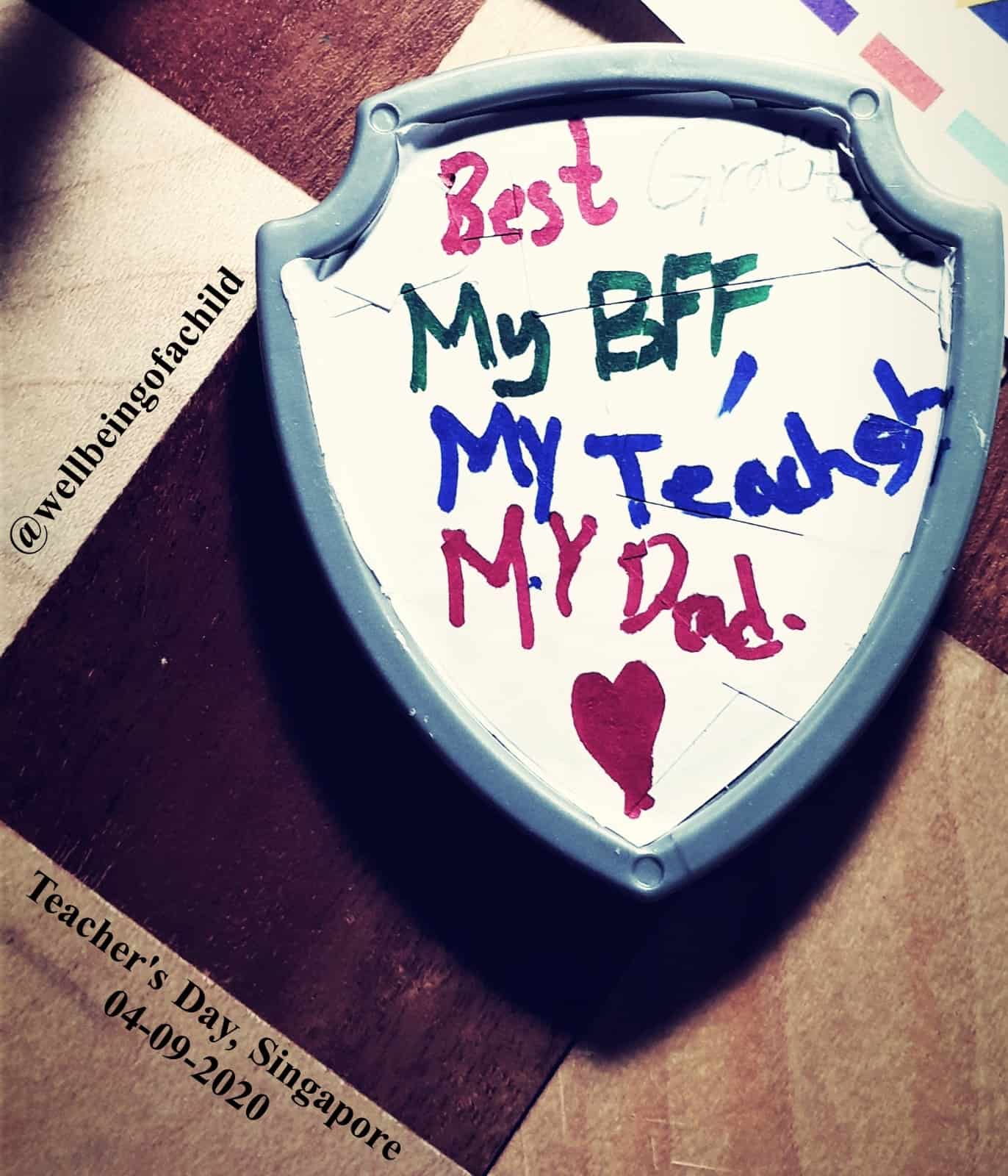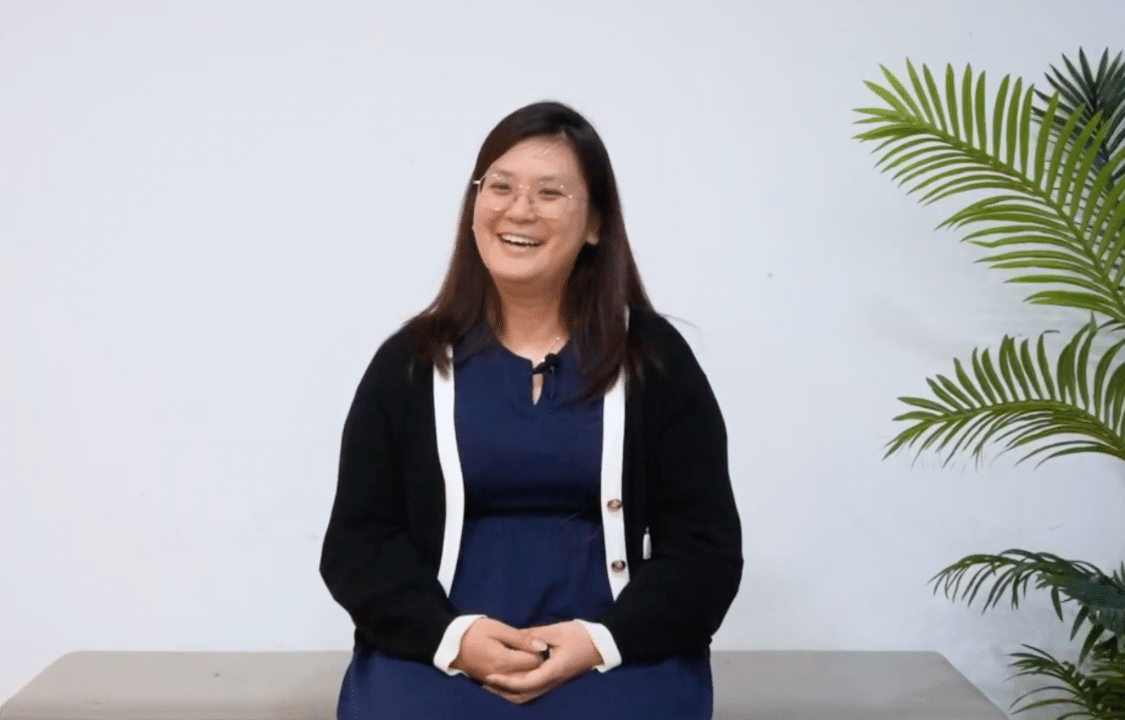Shaleen Porwal chose to be a Stay-at-home Dad so he could be a big part of his 7-year-old son’s growth. He shares his experience on integrating positive parenting strategies effectively into his relationship with his son.
Shaleen Porwal
Positive Parenting & Education Practitioner
Masters in Applied Positive Psychology, Anglia Ruskin University, UK, 2022
Postgraduate Diploma in Positive Education Strategies, 2021
Graduate Diploma in Applied Positive Psychology, 2020
Graduate Diploma in Psychotherapy & Counselling, 2019
Q: What got you started on your journey of discovering positive psychology?
Parenting is a journey that I wanted to embark on and get to know the process better, which led me to delve into Psychology – to understand the basics of human behaviour. I was looking for something concrete, relevant and scientific when it came to parenting my child.
The self-help books available in stores were unable to provide me with a deep human to human connection that parenting involved. Therefore I embarked on my journey with positive psychology, in order to gain new scientific methods with which I could chart out a way of successful parenting.
Q: Did you see any differences after learning Positive Psychology?
There are actually a lot of differences. Before learning about positive psychology, everything was very much impulsive and intuitive, and I found myself just trying to get answers quickly.
However, after the formal education with TSPP, and with the guidance of mentors like Jana Dawson, Prof. Ilona Boniwell and Dr Robert Biswas-Diener, I was given the space to explore the psychology and positive psychology to fulfil my needs.
However, after the formal education with TSPP, and with the guidance of mentors like Jana Dawson, Prof. Ilona Boniwell and Dr Robert Biswas-Diener, I was given the space to explore the psychology and positive psychology to fulfil my needs.
Q: How does having a Positive Psychology toolkit change your outlook on life?
There are two ways in which the tools I attained have changed my outlook on life.
Firstly, it has helped to lift a lot of weight off my shoulders. I used to think that it is my sole responsibility to bring up my child. This gave me a lot of pressure. Now, I realise that there are so many other factors that influence the development of a child, many of which are not in my control. It was the exposure to scientific ideas and the tools that I acquired from the courses that have helped me realise this.
Secondly, now I can work with the tools to handle specific situations and design my own methods to improve those situations. I am not dependent on somebody, or a book, or a research paper to help me. I can help myself. This has relieved me of many aspects of parenting. At the same time, it has given me more responsibility as to when to use and how to use my knowledge as a parent.
Q: How did you use the knowledge you gained with your 7-year-old son?
During the start of the HBL (Home Based Learning) phase, my son had some homework to do, and there was no teaching happening from his school. I took it as my responsibility to ensure that he has to get his homework done. This self-induced pressure to be his teacher at home gave me a lot of anxiety, lasting about 3 to 4 weeks. I actually considered abandoning the idea of teaching my child.
But then I realised that I was placing an unnecessary burden on myself. One day I looked at the wall in my room covered in post-it notes from class, and I realised that there has to be an answer somewhere in there.
Using what I learnt with psychology and positive psychology, I tried to find a way to overcome this challenge.
I created a framework called CaReSMA, which has five sets of interventions to guide me in teaching my child with compassion and to transition my role from being a parent to being a teacher.


Q: Tell us more about this CaReSMA framework you developed.
Firstly, I had to Calm down.
After that, came a realisation. I realised that this situation is an opportunity given to me and I should use it in the best way, the most amicable way. I have to make a conducive environment for learning so that I can establish a new bond with my child as a teacher and student.
I also realised forgiveness: I can forgive myself for the mistakes that I will be doing, I can forgive him for the mistakes that he will be making. And we can both forgive ourselves so that even if we are making mistakes, it is okay. I don’t have to be a perfect parent and you don’t have to be a perfect child.
Focus on the good things and what went well – these are important, and part of the third stage, which was the spotting stage. Try to meet them on their level. See what they are seeing.
What I spotted was that he is already so overwhelmed by not being able to meet his friends. On top of that, he has to attend these online classes which he has never done in his life. So, being compassionate and empathetic helped me a lot.
Then, I could move on to discovering his strengths, and my strengths. Trying to see both our strengths and how we can match them up. What are things he really loves to do?
Building on strengths is also building our bonds at the same time – something he really loves to do no matter what. Humour is his top strength, so he does drama. How can we use drama to create a positive environment conducive to learning?
So then we moved on to the benefit mindset. There is a fixed mindset, a growth mindset and then there is a benefit mindset. How can we benefit others?
Learning is not only for one person – it is for the entire community. How can I share my learning with others? With that, I had to be in a situation to share it with my son, so that I can teach him to share it with other people.
The last part of CaReSMA is Admire – celebrating the small victories. Any small success we have, we celebrate that. He recently shared with me a badge on Teachers’ Day, which says, “my BFF, my teacher, my dad”. ☺️

Q: That is a great affirmation that the strategies you used are working for your child! Are you planning to share your learnings on this?
CaReSMA framework has been appreciated at the IPPA World Congress 2021 by two eminent leaders in Positive Psychology, viz. Dr Lea Waters & Dr Mathew White. (I will be attaching a photo of their commendation)
Here is a Linkedin link for the IPPA Gallery Presentation.
Further, based on this framework, I was invited to be the speaker and conducted a webinar for 300+ parents for a school in the Philippines to address them to equip them with well-being skills for helping their children during this remote learning time. Here is the link.
Plus, you can use the existing reply as well to add.
Q: Any other advice for parents out there?
“For an optimal journey in child’s development, something that parents can definitely consider – knowing themselves and the needs of their child.”
Plus there are more that I have come up in all this while, you may want to check here.
Inspired to embark on your own transformation journey? Find out more on the courses that Shaleen completed at The School of Positive Psychology!


